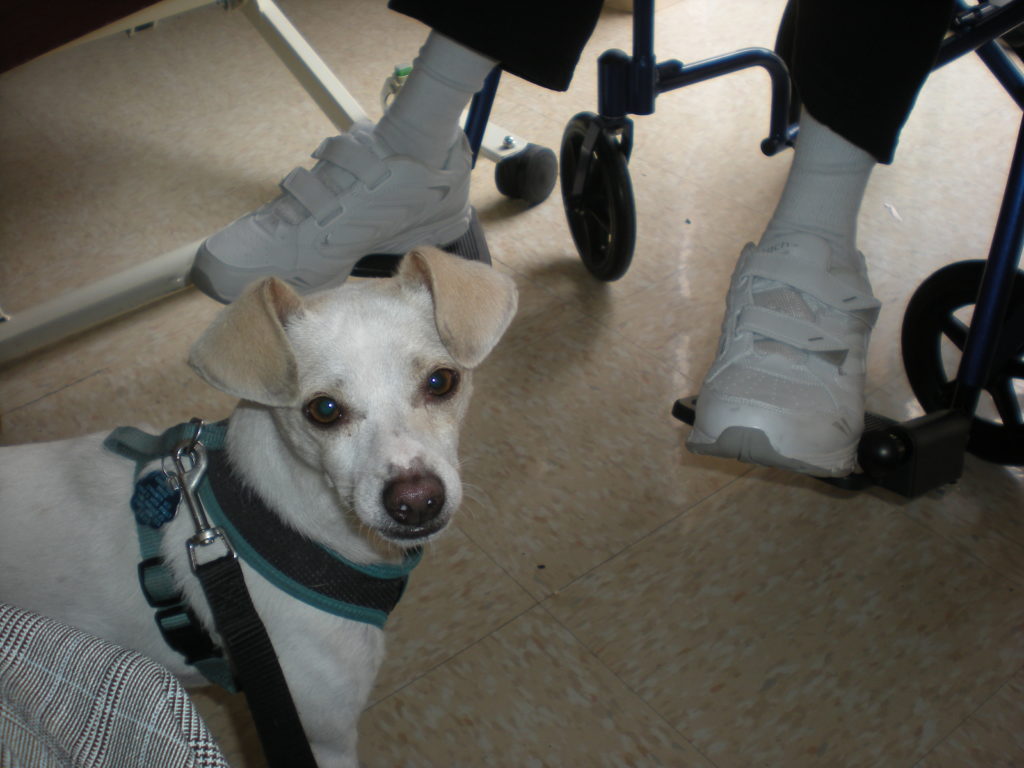UNITED STATES—”What are you doing?” Davy asks Karen.
“Prolonging the inevitable, that’s what.
“I can take over if you want.”
“She’s getting to the point with Grandma. No more food and Ensure.”
Willow walks in and addresses Doris in the other bed.
“Time for your rehab, darling.”
She swings her legs over the edge of the bed, she scowls and protests, then raises herself to the walker.
“Why aren’t they coming for me?” the mom growls.
“They won’t treat you,” Karen snaps. “You said no too many times. No is your favorite word. You were non-cooperative.”
“If you want to get better and go back to your garden, you are going to have to be cooperative.”
“What is it you tell me?” she stares out the blue bleary eyes, “Say yes and smile. “Davy and Karen look at her bewildered scowl. “Well, I am smiling.”
The juxtaposition between this and the scowl on her face produce a big laugh in Willow, the therapist.
“Oh, I don’t know why that’s funny.”
“You know what’s funny?” says Davy. “Why is a clock on the wall in front of the patient’s feet, and there at the head of the bed is a bulletin board with cards and letters that they can’t even see? I mean, so many people here are beyond time.”
“Say, Mom. Look, it’s 10:30 at night visiting time is almost over. Let’s get the hell out of this nuthouse.”
“Davy, have you given Saville a walk? He looks hungry. There (she pets him). What a cute dog.”
“No, not now. That’s the last thing on my mind, Mom.”
“She’s right,” says Karen. “He does look hungry and could use a walk.”
“Stop deciding for me. You already decided so much. The music… I bring you music and you can’t stand the voice on it. The other you shouted, ‘Get that off.'”
“I don’t know what you’re saying, but if I had a dog it would be just like Seville, but I wouldn’t want to walk it.”
“It becomes an act of rebellion to keep playing a song you don’t like. Which is everything, Betty. It takes balls not to listen to you and tune it out. I was an obedient son, too obedient. It’s why I run from conflict. Conflict permeates our every moment, what is said and unsaid.”
“Oh, I don’t know what you’re talking about. Can someone adjust my bed?”
“You’ve taught me the most important lesson, not to listen,” Davy says fiercely. “I don’t know if you taught us more as kids or in your reduced state. To not listen, not to get derailed…”
“Turn it down a bit, Davy,” Karen suggests. “There are people who are trying to die here.”
“Could you adjust that flower around in the vase so it’s facing me.”
Davy lets out a primal scream. The therapist sticks her head in the doorway and peers.
“Everything is OK. Sorry Willow,” Davy says. “Blowing off a little steam.”
“You sure?”
“Sure I’m sure.”
“I was thinking,” Willow says. “Your Mom has so much anxiety. The other day I walked in, and she said, ‘No, I refuse to do it,’ and I hadn’t even said anything. The anxiety is her problem, the fear of falling.”
“You’re right,” says Karen.
“We could ask Dr. O’Keary to give her a prescription.”
“Can’t hurt.”
“The anxiety’s been there for years. I see it now in little things; anxiety in her reaction to what we did our said.”
“I’m going to tell the nurse to call Dr. O’Leary’s office. And it wouldn’t hurt if you called him too.”
To be continued…






